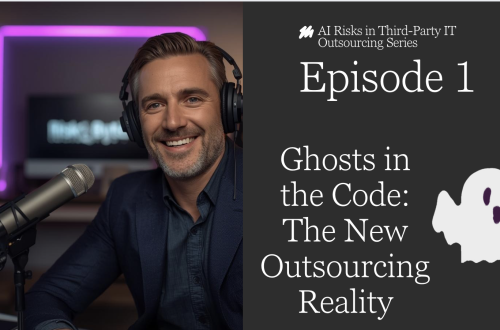TL;DR:
Capgemini’s $3.3B acquisition of WNS is a clear signal. The future of IT and BPO services for large organizations is agentic, intelligent, and outcome-based, demanding a proactive re-evaluation of your sourcing strategies and internal IT capabilities.

For IT and Sourcing teams within large organizations, the recent $3.3 billion acquisition of WNS Global Services by Capgemini isn’t merely an industry headline; it’s a profound signal. This strategic maneuver underscores a dramatic shift in how IT services and Business Process Outsourcing (BPO) will be conceptualized, delivered, and consumed. It’s a bold declaration that the future is agentic, intelligent, and deeply integrated, demanding a fundamental rethink of your engagement models and talent strategies.
Capgemini’s move establishes them as a player in a new category: Agentic AI-Powered Business Services. This isn’t about incremental improvements; it’s about a structural redesign of how enterprise operations will be powered. This is about blurring the lines between Transformation, IT and Business Process Services.
From Labor Arbitrage to AI Orchestration: What WNS Brings to the Table
WNS, a formidable player in business process management, brings to Capgemini not just significant revenue ($1.3 billion) and deep domain expertise across critical industries like insurance, healthcare, travel, and banking. Crucially, WNS has been strategically investing in AI and automation, highlighted by its acquisition of Kip.ai, an agentic AI platform designed to intelligently orchestrate repetitive decision-making across workflows.
While WNS possessed the AI capabilities and operational depth, it lacked the global consulting brand and the C-suite access that Capgemini commands. This synergy is purposeful, equipping Capgemini with:
- 64,000+ additional headcount across BPO and analytics – a critical mass for transitioning from human-centric to hybrid human-AI operations.
- Sticky BPO contracts with Fortune 500 clients, providing direct avenues to embed agentic AI within existing managed services.
- Enhanced vertical depth in key sectors, allowing for specialized AI application and outcome delivery.
- A crucial foothold to embed agentic AI directly into managed services delivery, fundamentally altering the nature of service contracts.
This is also a win for WNS which has seen flatline in it’s year to year revenue and realizes that it would be harder for the organization to make it on it’s own. The earlier growth model for BPO firms used to be to grow headcount to grow revenues. That model is out the door with AI and WNS also needs a strong IT and Consulting Partner to be relevant to Enterprises.
The New Synergy: Redesigning Service Delivery and Its Impact on Your Contracts
The traditional “cost-cutting” synergy model is obsolete. The real value in this acquisition lies in a profound convergence of operating models that directly impacts how IT and Sourcing teams should view their service providers:
- Capgemini’s strategic consulting and engineering expertise merges with WNS’s operational know-how and domain specificity. This means a single partner can now span from strategic roadmap to operational execution, reducing the fragmentation that often plagues large enterprise initiatives.
- AI models and Large Language Models (LLMs), including custom-built solutions, will increasingly orchestrate and augment the work of human agents currently executing rules-based tasks. This directly challenges the premise of purely FTE-based contracts in IT and BPO.
- Structured transformation programs will meet nimble, high-impact workflow redesign. Expect proposals that prioritize rapid, AI-driven workflow optimization over lengthy, people-intensive transformation cycles.
Together will it change the silos within delivery organizations from traditional IT, BPO and Data Services to a single AI Platform capable of providing integrated services including ‘digital employees’ end to end. For Sourcing teams, this means a shift from procuring discrete services to acquiring integrated, outcome-driven solutions. For IT teams, it means a convergence of traditional infrastructure and application services with intelligent operations, all powered by a unified AI backbone.
What This Means for IT and Sourcing Teams: Navigating the “BPO 2.0” Era
The dissolution of lines between BPO and IT Services is the paramount takeaway. Expect a flurry of similar acquisitions in the next 12-24 months, driven by factors directly impacting your strategic decisions:
- Agentic AI is reshaping the value chain: Enterprises no longer simply want hands and feet to run processes; they require orchestration engines that autonomously handle tasks, flag exceptions, and continuously learn. This renders traditional, pure-play BPO models less competitive. Sourcing teams must evolve their RFPs to reflect this demand for autonomous capabilities.
- Enterprise buyers demand end-to-end transformation: Business leaders are tired of fragmented contracts for digital strategy, process redesign, and ongoing operations. They seek a singular partner for the entire journey – from ideation to operationalized results. This impacts how IT projects are scoped and how Sourcing bundles services.
- Investment trends are shifting Venture Capital and private equity are cooling on BPO-only plays unless they demonstrate significant, embedded AI at scale. This indicates a broader industry consensus on the declining value of purely labor-arbitrage models, which will filter down to the competitive landscape you engage with.
Better, Faster, Cheaper — and Smarter: The New Paradigm for Enterprise Outcomes
If this integration succeeds, the benefits for your internal stakeholders are substantial:
- Shorter transformation timelines: The same partner can now design, implement, and operate change, eliminating the friction and delays inherent in handoffs between consulting and operations vendors. This streamlines IT project delivery and accelerates business value.
- Intelligent automation at the core: Instead of talent-based SLAs, expect contracts tied to business outcomes powered by AI – reduced turnaround times (TATs), fewer errors, dynamic pricing, and predictive decision-making. Sourcing will need to redefine how it measures and compensates for service delivery.
- Continuous innovation baked into contracts: Anticipate managed services that are designed to evolve rapidly, with new workflows, LLMs, and digital agents embedded into operations as standard. IT teams will no longer be managing static service definitions but dynamic, self-optimizing systems.
- Reduced vendor fragmentation: The Capgemini-WNS model offers the potential to rationalize multiple smaller vendor contracts into one strategic partnership, simplifying vendor management and optimizing spend for Sourcing.
The Real Stakes: Integration and the Future Workforce
Merging a BPO like WNS with a global integrator like Capgemini is not without significant execution risk. Differences in go-to-market motions, contracting styles, talent models, and delivery approaches are real challenges. However, if they can align under a unified AI-first service vision, driven by business outcomes rather than just headcount metrics, this could redefine how managed services are delivered, directly impacting your teams.
For IT and Sourcing, this signals a future where:
- FTE-based workforce models will increasingly be challenged by hybrid human-AI teams. The focus will shift from the number of people to the intelligence and automation embedded within the service. Sourcing teams must adapt their procurement strategies to reflect this.
- Upskilling within internal IT teams is paramount. To effectively manage and leverage these “Agentic AI-Powered Business Services,” your IT professionals will need skills in AI governance, prompt engineering, data pipeline management, and AI-driven solution architecture.
- Sourcing strategies must evolve from transactional to strategic partnerships. The complexity and embedded intelligence of these new services demand deeper collaboration and outcome-based contracting.
Challenges Organizations Face in Utilizing These New Services
It is crucial for IT and Sourcing leaders to understand that embracing these agentic, intelligent, and integrated services is not an overnight transformation. This is a multi-year journey requiring sustained commitment, investment, and a willingness to iterate and learn.
While the promise of Agentic AI-Powered Business Services is significant, large organizations will encounter several critical challenges in effectively adopting and leveraging them:
- Organizational Silos: Perhaps one of the most insidious challenges is the pervasive nature of organizational silos. Information, data, and expertise often remain locked within departmental boundaries (e.g., finance, HR, operations, IT). Agentic AI thrives on comprehensive, interconnected data and cross-functional workflows. When departments resist sharing data or collaborating on process redesign, the effectiveness of AI-powered services is severely hampered, leading to incomplete insights, duplicated efforts, and sub-optimal outcomes. Breaking down these long-entrenched barriers requires strong executive sponsorship and a cultural shift towards enterprise-wide collaboration.
- Data Quality, Privacy, and Security: Agentic AI thrives on vast amounts of data. Organizations face immense hurdles in ensuring the quality, availability, and bias mitigation of their data. Furthermore, outsourcing data processing to AI-powered services magnifies concerns around data privacy (e.g., GDPR, CCPA compliance) and cybersecurity. Establishing robust data governance frameworks, encryption protocols, and clear ownership for data used and generated by AI agents is paramount.
- Integration with Legacy Systems: Most large enterprises operate with complex, often decades-old legacy IT systems. Seamlessly integrating advanced AI platforms and agentic workflows with these established, sometimes brittle, systems is a significant technical and architectural challenge. This can lead to increased implementation costs and extended timelines, and necessitates careful API development and data orchestration.
- Governance and Accountability: The autonomous nature of agentic AI introduces new governance complexities. Who is accountable when an AI agent makes an error, or an unexpected outcome occurs? Organizations need to develop clear guidelines, ethical frameworks, and “human-in-the-loop” mechanisms for monitoring, auditing, and overriding AI decisions. Transparency in AI operations and decision-making processes will be crucial for building trust.
- Talent Transformation and Skill Gaps: The shift from managing human-centric BPO to AI-orchestrated services requires a fundamental re-skilling of internal IT and business teams. Existing staff may lack the necessary AI literacy, data science skills, prompt engineering expertise, or the ability to manage hybrid human-AI workforces. Overcoming resistance to change and addressing employee anxieties about job displacement will be critical for successful adoption.
- Defining and Measuring Value (ROI): Quantifying the return on investment (ROI) for these advanced AI services can be more challenging than traditional outsourcing. The value may not always be a direct cost reduction but could involve improved accuracy, faster time-to-market, enhanced customer experience, or more dynamic decision-making. Developing new metrics and KPIs that align with AI-driven business outcomes will be essential.
- Vendor Management Evolution: Sourcing teams will move from managing large pools of FTEs and transactional SLAs to negotiating complex, outcome-based contracts with partners leveraging sophisticated AI. This requires a deeper understanding of AI capabilities, pricing models for AI services, and robust mechanisms for performance monitoring and continuous improvement.
- Regulatory and Compliance Complexity: The regulatory landscape for AI is still evolving. Organizations operating across different geographies will need to navigate a patchwork of regulations related to AI use, data privacy, and ethical considerations. Ensuring that outsourced AI services comply with these diverse and often nascent laws adds another layer of complexity.
Final Thought: This Is Just the Beginning
This deal isn’t merely about creating a larger services behemoth. It’s about forging a new kind of services firm – one where human and digital agents collaborate, outcomes replace outputs, and AI is deeply embedded at the heart of every service.
If Capgemini and WNS successfully execute this vision, they won’t just disrupt their competitors; they may fundamentally disrupt how enterprises, and specifically IT and Sourcing teams, think about outsourcing itself.
Key Questions IT and Sourcing Teams Should Be Asking:
- For Sourcing Teams: How do we evolve our RFP processes and contracting models to procure outcome-based, AI-driven services rather than simply FTEs or task-based deliverables? What new metrics and governance frameworks are needed to manage these “digital employee” driven contracts?
- For IT Teams: What internal capabilities and skills (e.g., AI governance, data engineering, prompt engineering, AI solution architecture) do we need to develop or acquire to effectively partner with, manage, and derive maximum value from these new agentic AI-powered service providers ?





